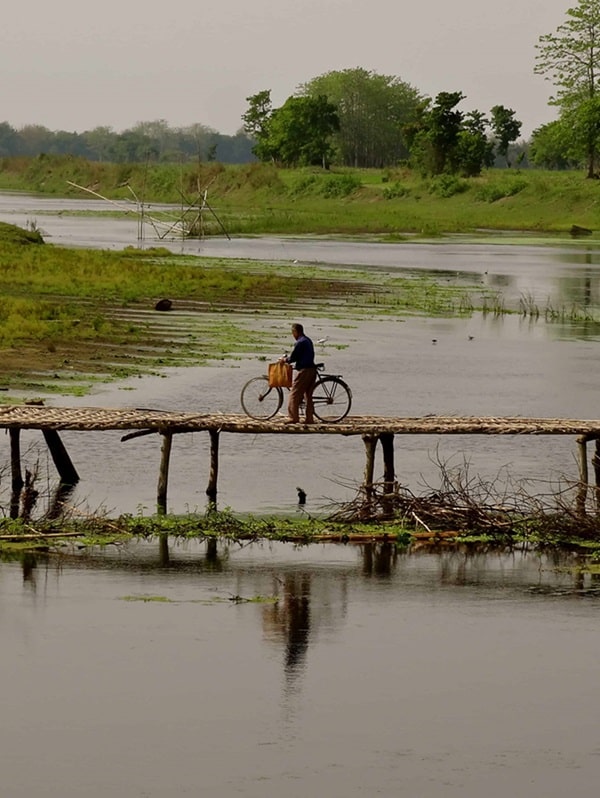The Mising tribe can also be spelled as Mishing tribe is the second largest tribe in northeast India. It is one of the major indigenous communities of Assam and parts of Arunachal Pradesh. They are ethnically Yilueto-Burmese group, belonging to the larger Tani group of tribes. They have been living along the Brahmaputra River. In Assam they mostly found in the districts of Majuli, Lakhimpur, Dhemaji, Sivasagar, and Jorhat. They are also found in some parts of Arunachal Pradesh near bordering area and foothills of the Himalayas. Mising community has their own language known as Mising language. Here, most Mising people are bilingual or trilingual, fluent in Assamese and/or Hindi.
Life of Mising People
Most common occupation of Mising people is agriculture and they also rely on fishing. In some areas Mising people also do traditional shifting cultivation. Here, people live in houses made of Bamboo are called “Chang Ghar” (stilt houses), built on bamboo stilts. This structure protects them from floods, which are very frequent in Assam. Mising women are expert weavers; while exploring you will find many women weaving clothes. You will see women wearing Mekhela, Chador, Gaseng, and Seleng. And men wear onru ugon (a traditional wrap), and Mibu Galuk (jacket). All these dresses are mostly made in homes by women mostly.

Festival and Culture
Mising Tribe follows Hinduism while they also follow their own traditional rituals. They worship deities like Doniya Polo (Sun Moon).
🌾 Ali-Aye-Ligang
Ali Aye Ligang is the most important and vibrant festival celebrated by Mising people. It is celebrated in the month of February during the onset of sowing season. People sing traditional music, do traditional dance like Gumraag and cook tasty food. You should definitely visit and join this celebration with mising tribe. Youths are not allowed to plough the land after this festival as it is believed to disturb the earth goddess.
They also celebrate Assamese festival Bihu with and other Hindu festivals.
Do comment below to know more tribes.
Until next time, keep travelling and take care of Nature.